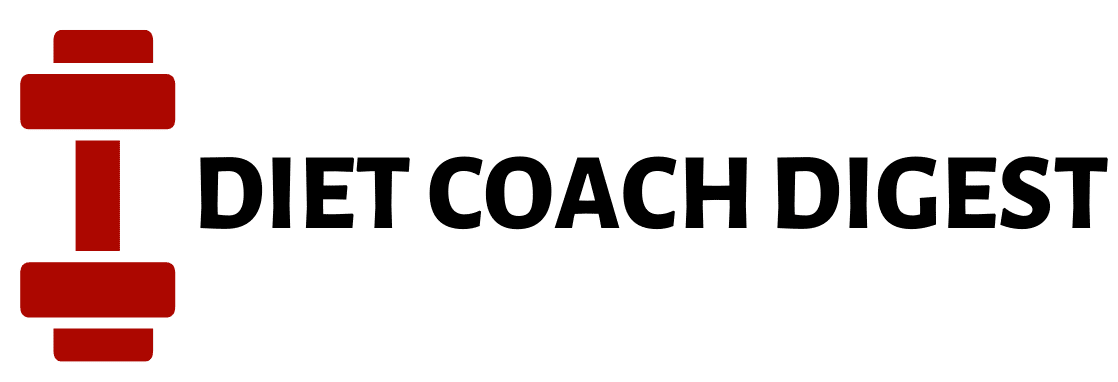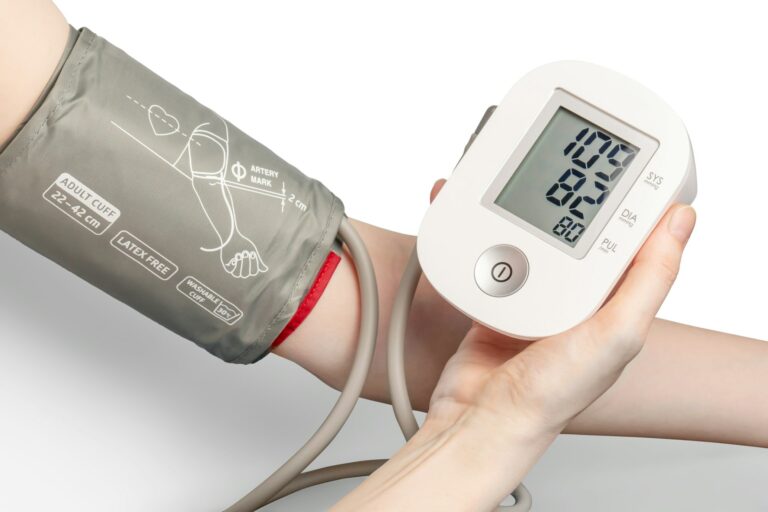Overcoming Plateaus: Strategies to Kickstart Weight Loss After 40

- Should You Train To Muscle Failure Every Set? What You Need To Know - March 4, 2025
- Nutrition in a Hurry: Top Post-Workout Snacks for Active People - February 20, 2025
- 15 Healthy Meal Prep Recipes: Your Weight Loss Made Easy - February 18, 2025
Overcoming a weight loss plateau after 40 can feel like an uphill battle, but it’s completely achievable with the right strategies. In “Overcoming Plateaus: Strategies to Kickstart Weight Loss After 40,” you’ll discover practical and effective tips to reignite your journey towards a healthier you. From understanding the importance of metabolism-boosting exercises and tailoring your nutrition to fit this stage of life to integrating mindfulness and stress management techniques, this article empowers you with the tools you need to break through barriers and achieve lasting results. Ready to see progress again? Let’s dive in and get started! Have you been feeling like your weight loss journey has hit a standstill? If you’ve recently turned 40 or are well into your 40s, you’re not alone in this struggle. Many people experience plateaus in their weight loss efforts, making it challenging to see continued success. Let’s dive into the strategies to kickstart weight loss after 40 and help you overcome those stubborn plateaus.

Understanding Weight Loss Plateaus After 40
As we age, our bodies undergo numerous changes that can impact our ability to lose weight. Hormonal fluctuations, muscle mass reduction, and a decreasing metabolic rate are just a few aspects you might be grappling with. It’s not about working harder; it’s about working smarter.
The Role of Metabolism
Metabolism often slows down as you age, which can make weight loss more difficult. Understanding your metabolic rate is key to designing an effective weight loss plan. Your Resting Metabolic Rate (RMR) decreases around 2% every decade after 20 years old, making it essential to adapt your lifestyle to these changes.
Tips to Boost Metabolism
- Eat Smaller, More Frequent Meals: Eating smaller portions more often can keep your metabolism active. Consider five small meals a day rather than three large ones.
- Stay Hydrated: Water is crucial for metabolic processes. Aim for at least eight 8-ounce glasses a day.
- Green Tea: Drinking green tea can give a modest boost to your metabolism. It contains bioactive substances that can help with fat burning.
Hormonal Changes
Hormones play a significant role in weight management, particularly during and after menopause for women, and andropause for men. These changes can lead to weight gain, especially around the midsection.
Managing Hormonal Impact
- Balanced Diet: Focus on fiber-rich vegetables, lean proteins, and healthy fats to balance insulin and other hormones.
- Avoid Processed Foods: These can spike your blood sugar and disrupt your hormone levels.
- Regular Check-Ups: Consult with your healthcare provider to monitor and manage hormonal changes.
Fitness Adjustments for Effective Weight Loss
Exercise continues to be a cornerstone of weight loss, but your approach might need to change as you age. You don’t necessarily need to spend more time in the gym; you just need to optimize your workouts.
Strength Training
Strength training is particularly important after 40, as muscle mass declines with age. This decline can contribute to a slower metabolism and weight gain.
Benefits of Strength Training
- Increases Muscle Mass: More muscle means a higher metabolic rate.
- Improves Bone Density: Reduces the risk of osteoporosis.
- Enhances Mobility: Decreases the risk of falls and injuries.
Recommended Exercises
| Exercise | Description |
|---|---|
| Squats | Great for building lower body strength. Can be done with or without weights. |
| Deadlifts | Excellent for targeting your back, glutes, and hamstrings. |
| Push-Ups | A classic exercise to strengthen the upper body. |
Cardiovascular Workouts
Cardio is still essential, but the intensity and type may need adjustment. High-Intensity Interval Training (HIIT) has been shown to be particularly effective for this age group.
HIIT Benefits
- Time-Efficient: Short, intense bursts of exercise followed by recovery periods.
- Boosts Metabolism: More effective than steady-state cardio for burning fat.
- Versatile: Can be adapted to different fitness levels.
Sample HIIT Routine
| Interval | Duration |
|---|---|
| High-Intensity (e.g., sprint or fast cycling) | 30 seconds |
| Low-Intensity (e.g., light jogging or slow cycling) | 90 seconds |
| Repeat | 8-10 times |
Nutritional Strategies
Diet is crucial when it comes to overcoming a weight loss plateau. The foods you consume can make or break your weight loss efforts, particularly as your nutritional needs change with age.
Balanced Diet
A balanced diet is fundamental. Focus on nutrient-dense foods that provide essential vitamins and minerals without excess calories.
Macronutrient Focus
- Proteins: Essential for muscle maintenance. Include lean meats, legumes, and dairy.
- Carbohydrates: Opt for complex carbs like whole grains, fruits, and vegetables.
- Fats: Include healthy fats from nuts, seeds, and fish.
Intermittent Fasting
Intermittent fasting has gained popularity as a weight loss strategy. It involves cycling between periods of eating and fasting, which can help you consume fewer calories and improve your metabolism.
Fasting Schedules
| Type | Eating Window | Fasting Period |
|---|---|---|
| 16/8 | 8 hours | 16 hours |
| 5:2 | Normal diet for 5 days | 500-600 calories for 2 non-consecutive days |
| Eat-Stop-Eat | Normal diet | 24-hour fast once or twice a week |
Lifestyle Changes and Habits
Beyond diet and exercise, there are several lifestyle changes that can help break a weight loss plateau.
Sleep Quality
Quality sleep is often overlooked but is essential for weight management. Poor sleep can affect the hormones that regulate hunger and satiety.
Tips for Better Sleep
- Consistent Schedule: Go to bed and wake up at the same time every day.
- Sleep Environment: Make your bedroom conducive to sleep—cool, dark, and quiet.
- Avoid Screens: Turn off electronic devices at least an hour before bed.
Stress Management
Stress can hinder weight loss by causing hormonal imbalances and emotional eating. Managing stress effectively can support your weight loss goals.
Stress-Reduction Techniques
- Meditation: Regular practice can improve stress levels.
- Exercise: Regular physical activity is a great stress reliever.
- Hobbies: Engage in activities you enjoy to divert your mind from stressors.

Behavioral Psychology and Mindset
Maintaining a positive mindset and implementing behavioral strategies can significantly impact your weight loss efforts.
Setting Realistic Goals
Unrealistic goals can lead to discouragement. Setting SMART (Specific, Measurable, Achievable, Relevant, Time-bound) goals can help maintain motivation.
Example of SMART Goals
| Goal | Specific | Measurable | Achievable | Relevant | Time-bound |
|---|---|---|---|---|---|
| Lose Weight | Lose 5 pounds | Weigh-in every week | Based on current lifestyle | Improves health | In 2 months |
Self-Monitoring
Tracking your progress can provide insights into what works and what needs adjustment.
Tools for Monitoring
- Food Diary: Track what you eat to identify patterns and triggers.
- Fitness Apps: Use apps to monitor physical activity and calorie intake.
Social Support
Having a support system can make a significant difference in overcoming a weight loss plateau.
Peer Support
Join a weight loss group or find a workout buddy to keep you motivated and accountable.
Benefits of Social Support
- Encouragement: Receive positive reinforcement.
- Accountability: Helps you stick to your plan.
- Shared Experiences: Learn from others who are on a similar journey.
Professional Help
If you’re struggling despite your best efforts, consulting professionals can provide personalized guidance.
Specialists to Consider
- Dietitian: For tailored dietary advice.
- Personal Trainer: For customized fitness plans.
- Therapist: For addressing emotional and behavioral factors.

Conclusion
Hitting a weight loss plateau can be frustrating, especially after 40, but it’s not insurmountable. By understanding the unique challenges posed by age and adopting targeted strategies, you can kickstart your weight loss journey again. Remember, it’s not just about losing weight; it’s about creating a sustainable, healthy lifestyle that you can maintain for years to come.
Feel empowered to make these changes and take control of your health. The road might seem long, but with persistence and the right strategies, you will see progress. Keep pushing forward, and don’t be afraid to seek support when you need it. Your future self will thank you.
Table of Contents







